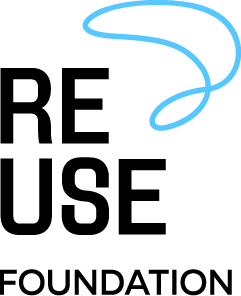Featured
TARGETING SINGLE-USE PLASTIC AND SEEING OPPORTUNITIES IN REUSE |
|
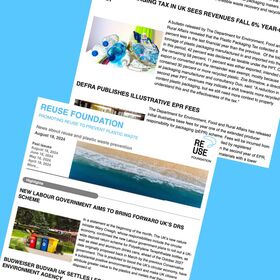
|
40% of plastic is for packaging, almost all of it single use. It’s used once then discarded. Disposable packaging is convenient but brings growing environmental and health costs.
It doesn't have to be this way. There are many ways to sell products without single-use plastic, including traditional and emerging solutions. Some of these solutions are experimental but others are already profitable and starting to scale. But knowledge and understanding about reuse solutions is patchy, support is low, and many solutions fail to get off the ground. REUSE Foundation is working to change this. We’re working on many fronts and this newsletter your reading is just one. This monthly brief brings together insights and key developments to help businesses and decision makers see the opportunities as well as the threats of inaction. We’ll supplement it with analysis and reports to inform and guide business practitioners and policy makers. Sign up for monthly updates.[Image Credit: © REUSE Foundation] |
Highlights
Carbios Unveils World’s First PET Biorecycling Plant in France |
|
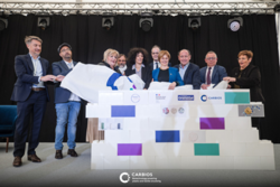
|
Carbios, a biotech company specializing in plastic and textile recycling, has commenced construction on the world’s first PET biorecycling plant in Longlaville, France. Scheduled to be fully operational by 2026, this facility will process 50kt/year of PET waste using Carbios' enzymatic depolymerization technology. This innovative method enables the recycling of previously non-recyclable materials, including multilayered and colored packaging, as well as polyester textiles. Carbios will receive grants of up to €54 million from the French government and Grand-Est region. The plant is located near Belgium, Germany, and Luxembourg, ensuring ample waste supply and creating 150 jobs in the region. [Image Credit: © CARBIOS]
|
Sephora Enhances Sustainability with Expanded Take-Back and Refill Programs |
|
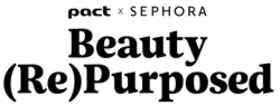
|
Sephora is expanding its Beauty (Re)Purposed take-back program and its refillable product offerings. Partnering with Pact Collective since May 2023, the Beauty (Re)Purposed program provides customers with in-store stations to recycle beauty product packaging, successfully collecting over 10,860 pounds of waste. Sephora’s refillable products, part of a program launched in April 2019, have also gained traction, particularly with brands like Youth to the People and Skinfix. The company addresses consumer education challenges through in-store signage and digital engagement. Sephora is set to expand its refillables selection to over 100 products by summer, reinforcing its sustainable practices and responding to growing consumer demand for environmentally friendly beauty solutions.[Image Credit: © Sephora USA, Inc]
|
Plastics Pact Network Helps 12 Countries Recycle 9% More Plastic Packaging |
|

|
The Plastics Pact Network, started by WRAP and the Ellen MacArthur Foundation in 2018, has helped 12 countries increase their plastic packaging recycling by 9%, or 463,000 tons. Details from the report, “Plastics Pacts – Scaling Impact”, the network eliminated 360,000 tons of “problematic and unnecessary” plastics and redesigned more than 850,000 tons of plastic packaging to make it reusable, recyclable, or compostable at scale. Also, the network has increased recycled content in packaging by 44%, avoiding the use of 2.2 million tons of virgin plastic in 2022.[Image Credit: © WRAP]
|
Mr Muscle And SC Johnson Honor Football Fans Who Supported Recycling Campaign With Walk Of Fame |
|

|
Mr Muscle and SC Johnson revealed a Walk of Fame on Rockfield Road to highlight fans of the Liverpool Football Club who supported plastic recycling campaigns at the Anfield stadium in Liverpool, England. Results of new research by Mr Muscle brand revealed that 80% of football fans believe sustainability is important, with 55% supporting sustainability initiatives. Mr Muscle released a Window & Glass cleaning spray with packaging made of the plastic recycled from the stadium.[Image Credit: © S.C. Johnson & Son Inc.]
|
Study Finds 56 Multinational Consumer Goods Companies Responsible For Half Of World’s Plastic Pollution |
|
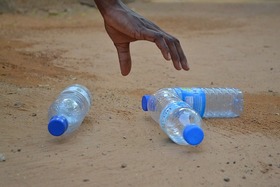
|
Only 56 multinational consumer goods companies accounted for about half of plastic pollution worldwide, according to a peer-reviewed study and analysis of five years of Break Free From Plastic Brand Audit data. Researchers gathered and analyzed 1,870,000 items of plastic waste across 84 countries, with Indonesia, Tanzania, the US, Malaysia, and Democratic Republic of Congo having the highest numbers of audits. Researchers noted that almost half of plastic waste reviewed was unbranded and untraceable, with Coca-Cola Company (11%), PepsiCo (5%), Nestlé (3%), Danone (3%), Altria and Philip Morris International (2%) as top contributors of branded waste.[Image Credit: © isidingo from Pixabay]
|
UK Postpones Launch Of Nationwide Deposit Return Scheme |
|
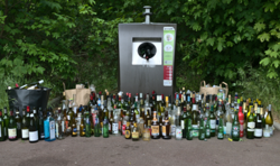
|
Instead of the planned 2025 launch, UK Government department Defra has delayed introducing the country’s Deposit Return Scheme until October 2027. Defra made the decision following extensive consultations and “collaborative efforts” with the Northern Ireland Executive, Welsh Government and Scottish Government. The proposed national DRS aims to improve recycling rates, reduce littering and move the country closer to a circular economy.[Image Credit: © Aleksandr Kadykov on Unsplash]
|
Unilever Revises Plastic Packaging Goals And Acknowledges It Won’t Hit Initial Targets |
|
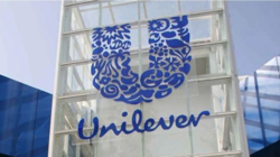
|
Unilever recently modified its plastic packaging sustainability targets, pushing deadlines beyond 2025, likely setting a precedent for potential shifts across the industry. With new objectives aiming to reduce virgin plastic footprint by 30% and 40% by 2026 and 2028 respectively, compared to an original target of a 50% reduction from a 2019 baseline by 2025. As of 2023 (latest data) it reported an 18% reduction. Unilever's adjustments reflect evolving regulatory demands and practical feasibility assessments. While the company maintains some original targets, such as using 25% recycled plastic in packaging, its revised timeline underscores a balance between ambition and realism. The move aligns with broader trends as companies reassess goals set in the 2018-2020 period amidst growing regulatory pressures and enhanced industry knowledge regarding sustainable packaging practices.[Image Credit: © Unilever]
|
World Needs International Treaty To Deal With Plastic Waste Pollution |
|
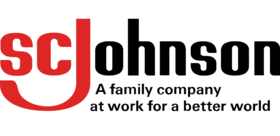
|
In a Newsweek op-ed, SC Johnson Chairman and CEO Fisk Johnson and M. Sanjayan, CEO of Conservation International, explained their support for a global plastics treaty to deal with the worldwide problem of plastic waste pollution. Plastic waste, and microplastics in particular, do not recognize national borders and therefore countries need to collaborate to solve this problem. Developed countries should provide financial and technical assistance to developing countries in setting up strong waste collection systems. Also, every country must do its part to set up national policies aimed at dealing with plastic waste pollution.[Image Credit: © S.C. Johnson & Son Inc.]
|
EU Parliament Adopts Rules To Reduce Plastic Packaging Waste |
|
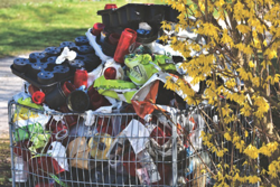
|
Aimed at improving the sustainability of packaging and reducing packaging waste across the European Union, the European Parliament approved new rules to reduce the amount of plastic packaging waste and set packaging reduction targets. By 2030, packaging should be cut by 5 percent; by 2035, 10 percent; and by 2040, 15 percent. Also, certain types of single-use plastic packaging will be banned from January 2030. These include packaging for unprocessed fresh produce, packaging for foods and beverages used in restaurants and cafés, and miniature packaging typically used in hotels and the like.[Image Credit: © Ralph from Pixabay]
|
University Of Saskatchewan Scientists Develop Bioplastic That Absorbs Phosphate From Water |
|

|
University of Saskatchewan chemistry professor Lee Wilson and his research team developed a bioplastic material that can absorb excess phosphate from water and function as a fertilizer when decomposing. According to a paper published in the “Royal Society of Chemistry Sustainability Journal”, the bioplastic material is a “biocomposite pellet that contains a marine polysaccharide, eggshells, and wheat straw”. [Image Credit: © Sören Funk on Unsplash]
|
Unilever Outlines Changes To Its Sustainability Strategy |
|
.png?width=280)
|
Unilever’s CEO, Hein Schumacher, talked about how the company has for years “put sustainability firmly at the heart of our business strategy” and how the focus must change to accelerate delivery of sustainability and with greater impact, “by making sustainability progress integral to business performance”. Its new strategy aims to make the company “more focused in allocating our resources towards our biggest sustainability priorities”; “more urgent in driving actions towards our long-term ambitions’; and “more systemic in our advocacy to address the enablers and blockers of progress outside of our direct control”. The four main areas of focus are climate, nature, plastics and livelihoods. Schumacher says that long-term commitments remain fundamental, but “we also need to ensure we deliver now”, and Unilever is “short-terming” its approach, "hard-wiring” the necessary steps “into the strategic cycles that most companies plan around”. He added that the company is reinforcing its focus on opportunities that “largely depend on global value chain transformations, technological innovations, and public policies to make them possible and affordable”. And it aims to use its voice more forcefully. An important part of this is leading the demand for a global plastics treaty that “sets binding rules, targets and standards on packaging redesign, reuse/refill models, extended producer responsibility (EPR), waste processing, and the elimination of avoidable plastics”. [Image Credit: © Unilever]
|
På(fyll)’s Circular Home Refill Service Removes Plastic Waste From Equation |
|
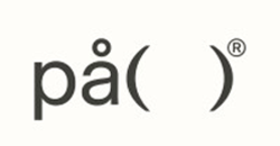
|
Norway’s På(fyll) aims to eliminate plastic waste by providing home delivery of household products in reusable packaging. Positioned as a modern version of the traditional milkman model, the company’s circular home refill service invites consumers to place orders for refilled containers delivered to their homes. Consumers can reorder by scanning the QR code on the container or going to the company’s website, pafyll.com. Used containers are collected, washed, refilled and used repeatedly. Orkla Home and Personal Care is supporting the new business.[Image Credit: © Påfyllsystemer AS]
|
Murad Introduces Cosmetic Products With Refillable Packaging |
|
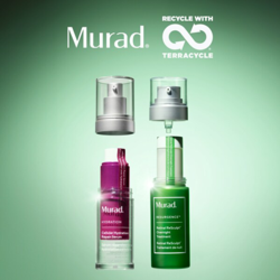
|
Murad introduced refillable versions of its Retinal ReSculpt Overnight Treatment and Cellular Hydration Barrier Repair Serum cosmetic products. The brand said the refills help cut packaging materials by as much as 85 percent, while saving 15 percent on cost.[Image Credit: © Murad / PRNewswire] |
Nestlé Plans To Use Recyclable Shrink Sleeves On Nesquik Range Of Milk Products |
|
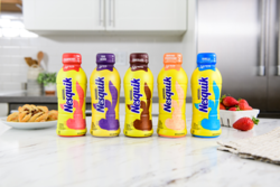
|
Nestlé said it plans to start using a new recyclable shrink sleeve label on its Nesquik range of ready-to-drink flavored milk products in the United States. Designed with a print technology that blocks light, prolonging the product’s shelf life, the crystallized PET sleeves mean the cap, bottle, and sleeve can be recycled together in the country. Also, the company revealed its plan to use the sleeve technology with its other beverage products.[Image Credit: © Nestlé]
|
Tetra Pak Research Shows Food And Beverage Manufacturers Willing To Pay For Sustainable Business Practices |
|

|
Research by Tetra Pak revealed that 77 percent of food and beverage manufacturers are willing to bear the cost of sustainable business practices. Of the companies that took part in the survey, half cited consumer demand as the driving force for adopting sustainable solutions for manufacturing and processing. This finding confirmed the finding of other Tetra Pak research that revealed that 74 percent of consumers are more likely to buy “if a brand talked about environmental topics”, while 42 percent think that sustainable packaging justifies higher prices.[Image Credit: © Tetra Pak International SA]
|
Study Finds Compostable Packaging Breaks Down Successfully At Composting Facilities |
|
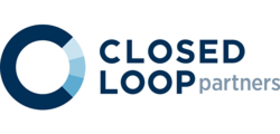
|
Compostable packaging breaks down as designed at composting facilities that satisfy reasonable parameters, according to a study by the Composting Consortium. Details of the report, “Breaking It Down: The Realities of Compostable Packaging Disintegration in Composting Systems”, also revealed that compostable packaging and products achieved an average disintegration rate of 98 percent by surface area, while compostable fiber packaging recorded an 83 percent rate. The study also found out that some operating conditions, such as turning, agitation and consistent moisture levels above 50 percent, enhance breakdown of fiber packaging and products.[Image Credit: © Closed Loop Partners]
|
US Toothpaste Companies Adopt HDPE-Compatible Recyclable Packaging Tubes |
|
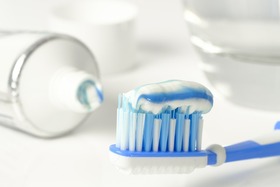
|
According to research company Stina Inc., about 90 percent of toothpaste tubes sold in the US today are manufactured in a manner that means they can be recycled with HDPE, and that 75 percent of squeezable plastic tubes have the “correct design”. At present, manufacturers accounting for 90 percent of the US toothpaste market have adopted the guidance issued by the Association of Plastic Recyclers for making tubes compatible with the HDPE recycling stream.[Image Credit: © Bruno from Pixabay]
|
Unilever Helps Launch Competition Promoting Innovation In Plastic Recycling In Vietnam |
|

|
Unilever Vietnam partnered with the country’s Ministry of Natural Resources and Environment, the British Chamber of Commerce, the Startup Vietnam Foundation, the British Embassy and Standard Chartered Bank to launch a competition aimed at promoting innovations in plastic waste collection and recycling. The contest seeks to push a circular economic model in plastic waste management and support the creation and implementation of product and packaging recycling responsibility rules for manufacturers and importers. The contest is open to both individuals and organizations with sustainability-related services, products and technologies.[Image Credit: © Unilever]
|
WRAP Opens Washington Office To Coordinate Actions Across The Americas |
|
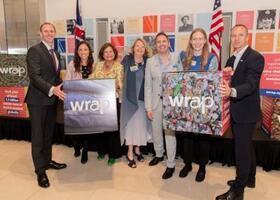
|
Anti-climate change NGO WRAP opened a new office in Washington, D.C. Executive Director Leah Karrer will lead the office, established to coordinate action aimed at food waste, plastic pollution and textile waste across North, Central and South America. WRAP in the Americas is working with partners in Brazil for the launch of the first nationwide food waste voluntary agreement in the country. The group will publish a report on the impact of the agreement and other similar deals worldwide before the next round of the Global Plastics Treaty negotiations.[Image Credit: © The Waste and Resources Action Programme]
|
Report Highlights Emerging Trends In Sustainable Packaging |
|
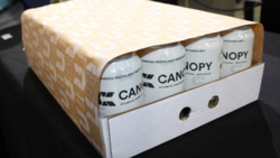
|
Fiber-based packaging is finding an increasing number of applications that used to be exclusively for plastic, according to the Sustainable Packaging Coalition. Details from the first issue of the group’s Packaging Innovation Trends Report also highlighted other trends in sustainable packaging, such as the growing adoption of seaweed as a packaging material and the use of machine learning and artificial intelligence in recycling packaging with complex designs. Also, the report highlights the use of digital recyclability labelling and how cities are driving growth of reuse programs.[Image Credit: © Atlantic Packaging]
|
Survey Shows 63 percent Of Americans Support Global Plastics Treaty |
|
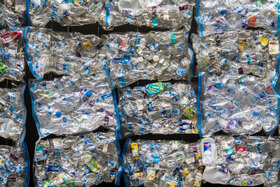
|
In the US, 63 percent of respondents said they support a Global Plastics Treaty that would ban single-use packaging, according to Greenpeace International. Details of the global survey also revealed that 75 percent of American respondents said they would use refillable and reusable packaging if it was “more convenient or more cost-effective”. Also, 82 percent of respondents to the survey, which included respondents in several countries, including the UK, Canada, India, Brazil and Egypt, said they support reduction in plastic production to end plastic pollution.[Image Credit: © Nick Fewings on Unsplash]
|
Beauty Retailers Launch Programs To Reduce, Recycle, Reuse Plastic Packaging |
|
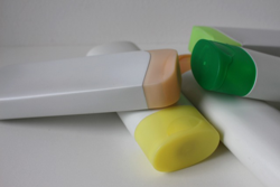
|
Beauty retailers Kiehl’s, Sephora, Shoppers Drug Mart and Ulta launched initiatives aimed at reducing their use of plastic packaging and contribution towards plastic pollution. Kiehl’s Since 1851 line is working with artist Benjamin Von Wong to launch the Single-Use Reflections sculpture urging viewers to think about how systemic change and personal efforts can help the environment. In Canada, Shoppers Drug Mart launched its Quo Beauty Cosmetics Free Recycling Program, while Ulta Beauty expanded its partnership with Pact Collective to widen the Beauty Drop-Off recycling program.[Image Credit: © Monfocus from Pixabay]
|
Survey Says 1/3 Of American Adults Reduced Use Of Plastic Products |
|

|
In the US, about a third of adults say they have decreased their use of plastic products over the past five years, but data from the most recent NPR/PBS NewsHour/Marist survey also revealed that 47 percent showed no changes in their levels of use of water bottles, straws and other plastic products. Also, survey results showed households with annual income above $50,000 and college graduates were more likely to report a decline in their use of single-use plastics. Political affiliations also seemed to play a role, with Democrats and independents reporting more of a decrease in their plastic use compared with Republicans.[Image Credit: © isidingo from Pixabay]
|
Activist-Investor Files Shareholder Resolution Requiring Kraft Heinz To Improve Packaging Recyclability And Labels |
|
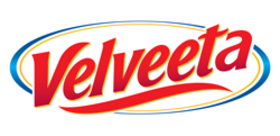
|
California chemical engineer and activist-investor Jan Dell filed a shareholder resolution with Kraft Heinz to force the food manufacturer to be more transparent about how it recycles its plastic packaging. Dell said her action is aimed at ensuring the company reduces its risk against lawsuits over its recycling labels and urges the company to improve the recyclability of its plastic packaging. Shareholders are currently voting on the resolution ahead of the company’s May 2, 2024, annual meeting.[Image Credit: © The Kraft Heinz Company]
|
